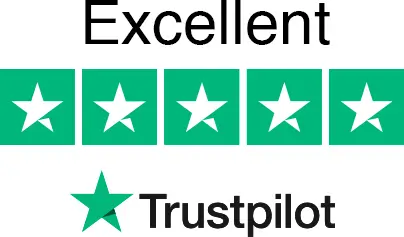Key Takeaways
- Data processing under UK GDPR and the DUAA 2025 covers collecting, recording, storing, analysing, updating, or deleting personal information in your business.
- Business activities such as updating customer records, marketing emails, and using automated decision-making tools are all examples of data processing in the UK.
- Not all business activities are considered data processing—for example, handling fully anonymised or truly aggregated data falls outside these laws.
- Mistakes in data processing compliance can result in regulatory fines, reputational damage, or expensive business disputes.
- The DUAA 2025 adds new UK requirements for documenting data processing, especially for automated decision-making and scientific research activities.
- Keeping a records of processing activities (RoPA) is a core legal principle and demonstrates your compliance with UK data protection law.
- Always identify the lawful basis for each processing activity, and assess whether a data protection impact assessment (DPIA) is required for higher-risk data use.
- Our step-by-step tools and lawyer-approved templates make complex compliance straightforward for small businesses.
- Go-Legal AI is rated Excellent on Trustpilot with over 170 five-star reviews from satisfied users.
What Can Data Processing Include Under UK Law?
Are you unsure whether your daily business operations count as “data processing”? You’re not alone. Many founders and small teams worry about missing risks that can result in hidden costs, fines, or damage to customer trust—especially as UK data protection laws continue to evolve.
This guide sets out exactly what data processing includes under UK GDPR and the new Data (Use and Access) Act 2025 (DUAA). We clarify the legal definition, highlight the latest changes, and provide practical business examples—so you can clearly see which of your activities are covered, where risks exist, and how to meet your obligations. You’ll learn which operations like email marketing, updating customer details, or using AI-driven tools now demand extra care, and what falls safely outside legal requirements.
Our AI-powered platform offers step-by-step compliance guides, lawyer-reviewed templates, and instant support—so you can breeze through legal requirements and keep your business protected.
What Can Data Processing Include Under UK GDPR and DUAA 2025?
Under UK GDPR Article 4(2), “processing” covers any operation—or series of operations—performed on personal data, whether automated or manual. The DUAA 2025 updated and clarified this, confirming that structured manual records (such as sorted paper files) are regulated if they relate to identifiable individuals. In practice, almost any business action involving personal data is likely to count as data processing.
| Type of Data Processing Operation | SME Business Example |
|---|---|
| Collection | Gathering customer sign-up forms |
| Recording | Adding client call notes to your CRM |
| Organisation | Categorising contacts into mailing lists |
| Structuring | Building a database for staff details |
| Storage | Keeping CVs on file |
| Adaptation/Alteration | Editing customer addresses or emails |
| Retrieval | Accessing a client invoice for queries |
| Consultation | Reviewing sales performance linked to individuals |
| Use | Analysing user statistics for marketing decisions |
| Disclosure by Transmission | Sending payroll data to HMRC |
| Dissemination/Otherwise Making Available | Emailing a partner with client details |
| Alignment/Combination | Merging two datasets for analytics |
| Restriction | Locking records before an audit |
| Erasure/Destruction | Permanently deleting obsolete files |
What is the Definition of Data Processing in UK Law?
UK GDPR Article 4(2) defines “processing” as any operation performed on personal data, such as collection, recording, organisation, structuring, storage, adaptation, retrieval, consultation, use, disclosure, dissemination, alignment, restriction, erasure, or destruction—whether automated or by hand.
In simple terms, nearly everything you do with personal data—from collecting a customer’s details, to maintaining spreadsheets, updating addresses, or securely deleting files—falls within this definition. Importantly, this applies to both electronic records and manual systems that are structured (like sorted filing cabinets).
What Activities Qualify as Data Processing for UK Businesses?
Are Updating Records or Sending Marketing Emails Data Processing?
Yes—if you handle personal data in any way, almost every standard SME operation is covered by UK GDPR and DUAA 2025. The crucial test is: does your activity relate to information which directly or indirectly identifies an individual? If so, you must identify a lawful basis and meet documentation requirements.
Common Data Processing Activities:
- Adding or updating customer details in a system
- Sending marketing emails or newsletters
- Payroll runs and reporting to HMRC
- Analysing visitor data from analytics platforms
- Storing or reviewing CCTV footage from business premises
- Deleting, archiving or anonymising client records
DUAA 2025: What Has Changed About Data Processing Rules?
How Does DUAA 2025 Affect Automated Decision-Making and Research?
The Data (Use and Access) Act 2025 (DUAA) introduced targeted updates to UK data laws—especially for businesses using automation or conducting research. These changes create more flexibility but also additional documentation requirements.
Key DUAA 2025 Changes:
- Expanded Compatible Processing: Certain secondary uses, such as internal analytics or research, are now more likely to be permitted without new consent, provided robust safeguards are in place.
- Automated Decision-Making (ADM): Some restrictions have been relaxed, but you must document human oversight, ensure transparency, and adopt risk-mitigation strategies where decisions could significantly impact individuals.
- Broader Research Definition: Commercial research, as well as academic and medical studies, can now be “compatible further use” if handled lawfully.
- Stricter RoPA Requirements: You must keep processing records up to date, especially when using new tech (like AI or automation).
What Activities Are NOT Considered Data Processing Under UK GDPR or DUAA?
Does Viewing Anonymised or Aggregated Data Count as Processing?
Not every interaction with information triggers compliance duties. Certain activities are safely outside UK GDPR and DUAA scope—understanding the boundary helps you focus your compliance effort.
| Activity | Regulated? | Why |
|---|---|---|
| Using properly anonymised data | No | If re-identifying a person is impossible |
| Reviewing statistical aggregates | No | Only if individual identification is impossible |
| Personal notes for household use | No | “Household exemption”: not in business |
| Manual notes not in any system | No | Only if unstructured, not indexed |
| Pseudonymised or reversible codes | Yes | Still regulated—identification possible |
| Using business spreadsheets/CRMs | Yes | Always regulated if tied to individuals |
Key Data Processing Operations: Practical Compliance Examples
| Operation | Real SME Example | Compliance Step |
|---|---|---|
| Collecting job applications | HR at “RecruitRight Ltd” files CVs | Add to RoPA; give applicant notice |
| Processing payroll | “Booksure Accountants” runs monthly payroll | Restrict access; record sharing |
| Sending marketing emails | “EcoSmart Living” updates customers on offers | Check consent/legal basis; add opt-outs |
| Removing ex-client data | “Bright Events UK” deletes files upon request | Log erasure in RoPA; confirm with client |
| Reviewing website analytics | “Urban Fitness” analyses user data | Update privacy notice; limit access |
| Sharing event attendee lists | Hospitality business shares with partners | Verify partners’ GDPR compliance |
⚡ Get legal tasks done quickly
Create documents, follow step-by-step guides, and get instant support — all in one simple platform.
🧠 AI legal copilot
📄 5000+ templates
🔒 GDPR-compliant & secure
🏅 Backed by Innovate UK & Oxford
How to Stay Compliant: Step-by-Step Data Processing Checklist for UK SMEs
1. Creating and Maintaining Records of Processing Activities (RoPA)
- Identify All Processing Routines: Make a thorough list of every task involving personal data—collecting, storing, analysing, sharing, or deleting.
- Describe Data Types: e.g., names, emails, payroll information, special categories (such as health data).
- Record Data Subjects: Identify whose data is handled (customers, staff, contractors, etc).
- Log Purpose for Each Process: Clearly state why data is processed in each scenario.
- Review and Update Regularly: Each time your systems or policies change, update your RoPA.
2. Identifying Your Lawful Basis for Each Activity
- Check the Six Lawful Bases: Consent, contract, legal obligation, vital interests, public task, legitimate interest.
- Assign a Basis to Each Activity: For example, payroll = legal obligation; email marketing = consent or legitimate interest.
- Document Your Justification: Note down why you’ve chosen that specific basis for future reference.
3. Recognising When You Need a Data Protection Impact Assessment (DPIA)
- Assess Risk: DPIAs are mandatory for any high-risk data uses, such as new tech, automated decision-making, or large-scale processing.
- Check for ADM or Sensitive Data: Automated decisions affecting individuals or handling of sensitive data warrants a DPIA, especially under DUAA 2025.
- Complete and Store Your DPIA: Record your risk analysis, mitigation steps, and outcomes.
- Keep Privacy Notices Accurate: Regularly update privacy information so individuals understand how you use their data.
Automated Decision-Making (ADM) and Scientific Research: Key Compliance Issues
What Safeguards are Required for Automated Decisions?
Automated Decision-Making (ADM) occurs when significant choices about a person are made solely by software or algorithms. Under DUAA 2025, while there is a degree of increased flexibility, businesses must demonstrate:
- Human Oversight: People affected can request a manual review of decisions made by algorithms.
- Transparency: Individuals must receive clear explanations about how and why a decision was reached.
- Right to Contest: Anyone impacted by ADM has the right to challenge an outcome.
- Detailed Documentation: Procedures, logic, and risk mitigations must be recorded, supporting your accountability.
How Has DUAA 2025 Changed the Rules for Research Uses?
The act expands “research” to include a much broader range of purposes—medical, academic, and commercial. Further processing for research reasons is allowed without fresh consent if strong privacy measures (like minimisation and pseudonymisation) are applied and “compatible use” is documented clearly in your policies.
Common Data Processing Pitfalls and How to Avoid Them
| Problem | Why It’s Serious | Fix |
|---|---|---|
| No RoPA or incomplete records | ICO fines and audit risk | Use our smart RoPA template |
| Wrong lawful basis | Makes your processing unlawful; raises risk | Audit and match lawful bases regularly |
| Outdated privacy notices | Individuals can’t exercise rights | Link and update notices everywhere |
| Overlooking new ADM/research rules | Legal exposure from missed DPIAs | Revisit workflows post-DUAA updates |
| Thinking pseudonymisation is anonymous | Major compliance error | Give your team clear training |
| No senior data responsibility | Risk of mistakes and failed audits | Appoint a data protection champion |
How Go-Legal AI Simplifies Data Processing Compliance
- Real-Time SME Scenario Checker: Instantly determine if a new idea or workflow requires data compliance action.
- Lawyer-Approved Templates: Access up-to-date, UK-specific RoPA, DPIA, privacy policy, and consent forms.
- Automated Compliance Dashboards: Produce audit-ready reports and monitor compliance health across all activities.
- Affordable On-Demand Legal Reviews: Book specialist reviews of your data processes without the cost or delay of traditional firms.
Using our platform, you can create, update, and document every type of Records of Processing Activities, run DPIAs, and keep privacy notices up to date—streamlining all your data compliance from one dashboard.
Frequently Asked Questions
What does “processing” mean under UK GDPR Article 4?
Processing means carrying out any action on personal data—collecting, using, storing, transmitting, reviewing, updating, or deleting—either using technology or with structured paper records.
Are background checks covered by data processing rules?
Yes. Collecting, storing, or distributing information for background screening is regulated under UK data law.
Do marketing emails count as processing?
Absolutely—sending, tracking, or responding to marketing emails requires your business to identify a lawful basis, inform recipients, and keep accurate records.
How does DUAA 2025 affect further processing?
DUAA 2025 allows further processing (like analytics or research) if strong safeguards are in place and your privacy policy documents the new uses.
When is a DPIA compulsory?
DPIAs must be completed if your processing could put individuals’ rights at high risk—such as when launching new tech features, automating decisions, or handling sensitive categories.
Who is a data controller or processor?
A controller chooses how and why data is handled (e.g., your own clients). A processor acts only on instructions from a controller (e.g., outsourced HR or payroll providers).
What’s the difference between anonymisation and pseudonymisation?
Anonymisation means nobody can ever identify an individual from the data—full removal of identifiers. Pseudonymised data swaps names for codes but the link can be restored, so it’s still subject to UK data law.
How do I update for DUAA 2025?
Check each of your processing activities (especially automation or research), revise your RoPA, privacy notices, and DPIAs, and use updated checklists to capture all expanded requirements.
Secure and Simplify Your Data Compliance with Go-Legal AI
Getting data processing right under UK GDPR and DUAA 2025 is crucial for every business handling personal data. Today’s expanded rules mean that even small slip-ups—like missing records, the wrong lawful basis, or outdated privacy information—put you at real risk of fines or investigation, especially as regulatory scrutiny increases.
Don’t risk expensive oversights or compliance headaches. With our platform, you can create and keep up-to-date, expert-approved Records of Processing Activities, run automated DPIAs, and stay ahead on all your obligations with lawyer-drafted templates—at a price made for growing small businesses.
Ready to protect your business and simplify compliance? Start for free with our automated tools and step-by-step compliance workflows, so you manage every aspect of data processing the right way.
⚡ Get legal tasks done quickly
Create documents, follow step-by-step guides, and get instant support — all in one simple platform.
🧠 AI legal copilot
📄 5000+ templates
🔒 GDPR-compliant & secure
🏅 Backed by Innovate UK & Oxford










































